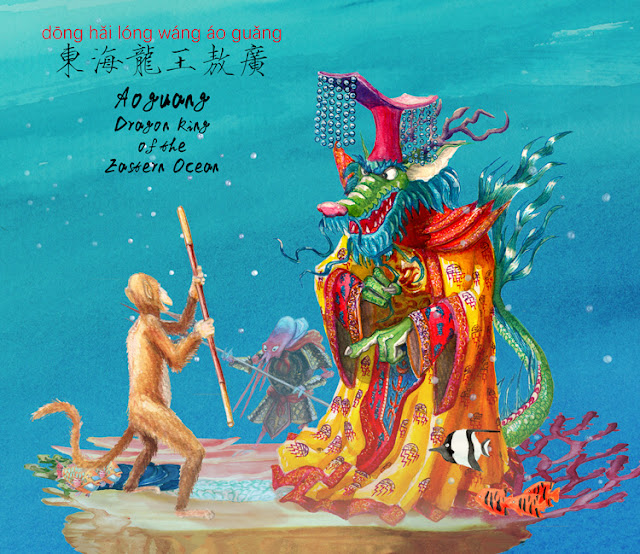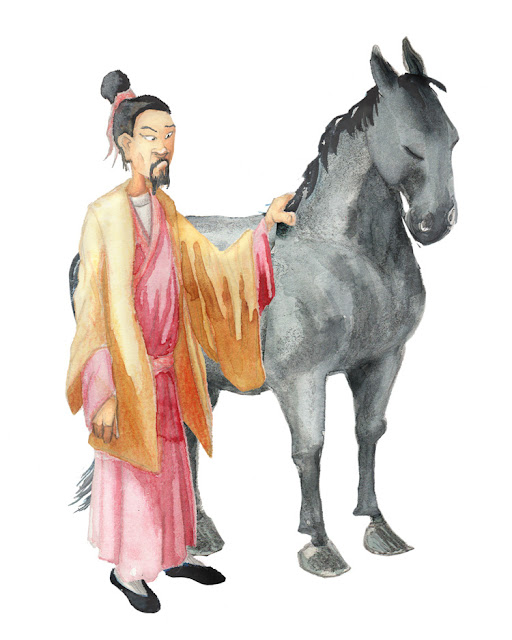'Elephant Chess' and Persian loanwords in Chinese
 |
| Illustration of an elephant as Persian warrior by me (Jason Pym) |
Originally the game only had four different pieces. During the Northern Song dynasty (北宋 Běi Sòng (960-1127)) they added the elephant piece, equivalent to bishops in Western chess*. But China never had war elephants, so where did this piece come from?
Persia.
Persia had war elephants, and Persian chess, and Persian chess had a war elephant piece.
At the time there was a roaring trade between Persia and China, as there had been for centuries, and the exchange was not only in material goods but inevitably it was also a cultural exchange. Chinese adopted words from the Persian language some of which are still in common use today:
狮子 shī zi lion, is ‘shir’ in Persian, and lions have been a symbol of the country and its royal family from ancient to modern times. Note that though the Asiatic lion (Panthera leo leo) was native to Persia, the only surviving population is in India.
葡萄 pú táo grape, comes from the word for wine, pronounced ‘baa-der’ in Persian
枸杞 gǒu qǐ wolfberry, ‘goji’ berry (fruit of the boxthorn, Lycium chinense)
石榴 shí liu pomegranate (Punica granatum), native to Persia and northern India. Note that the word ‘grenade’ comes from the French for pomegranate, and the Chinese word for hand grenade does too: 手榴弹.
(These last two, goji berry and pomegranate, are Persian in origin according to Chinese sources, though I can’t find corroboration in English).
So with all this cultural influence, it’s not a great stretch to see they’d introduce a chess piece too.
* Only on the black side, on the red side they added the ‘minister’ piece (相 xiàng) which is a homonym for elephant.


Comments
Post a Comment